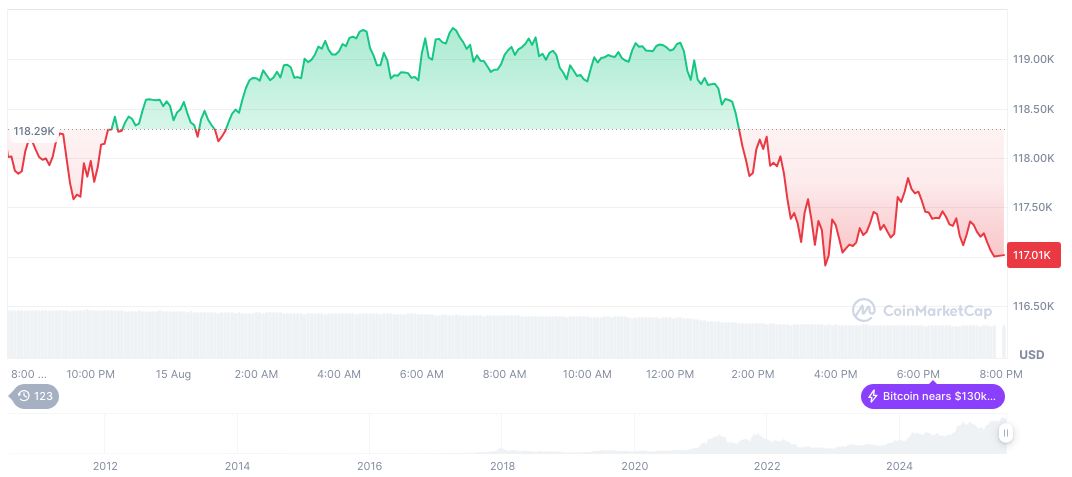- US imposes 25% tariffs on Indian goods due to Russian oil purchases; Trump’s possible tariffs on China remain undecided.
- Tariffs raise US-India trade barriers.
- Looming uncertainty affects global markets.
The U.S. announced additional tariffs on Indian goods as retribution for India’s purchase of Russian oil, escalating trade measures amid geopolitical tensions.

The tariffs highlight shifting international trade dynamics and could impact sectors reliant on global cooperation, reflecting national security and foreign policy angles in economic decisions.
50% Tariff Increase Spurs Global Market Volatility
The US has doubled tariffs on Indian goods to 50%, a move rooted in national security and foreign policy concerns. President Trump’s executive action criticizes India’s oil relationship with Russia, while potential secondary tariffs on Chinese imports were mentioned but not enacted. India and its Prime Minister Narendra Modi have denounced the tariffs as “unfair, unjustified and unreasonable,” stating India will “not back down in the face of economic pressure.”
The economic ramifications are substantial, with Indian sectors such as textiles and marine products facing immediate challenges. Market analysts are observing a period of volatility as businesses adapt to the new facts on the ground, weighing both trade significance and broader market repercussions. President Trump’s remarks about potentially delaying Chinese tariffs contribute to ongoing market uncertainty.
“If I did a secondary tariff [on China], it would be devastating, if I have to I will, maybe… I may have to consider it in two or three weeks, but we don’t have to consider it now,” said Donald Trump, President of the United States.
Market Data and Insights
Did you know? Escalations in trade disputes historically sent Bitcoin prices rising as investors look for safe havens. The 2018 tariffs on Chinese goods, for example, coincided with increased BTC trading volumes.
According to CoinMarketCap, Bitcoin (BTC) is priced at $117,732.65 with a market cap of $2.34 trillion, holding 59.09% market dominance. The 24-hour volume stands at $61.71 billion, down 21.22%. Over the past 30 days, Bitcoin has seen a slight 0.54% price decline.
Coincu’s research highlights the ongoing geopolitical tensions as potential catalysts for financial volatility, impacting global markets. Given the current economic landscape, cryptocurrencies could serve as alternative hedges for investors seeking stability amid uncertain trade relations.
| DISCLAIMER: The information on this website is provided as general market commentary and does not constitute investment advice. We encourage you to do your own research before investing. |
Source: https://coincu.com/news/us-tariffs-indian-goods-oil/
